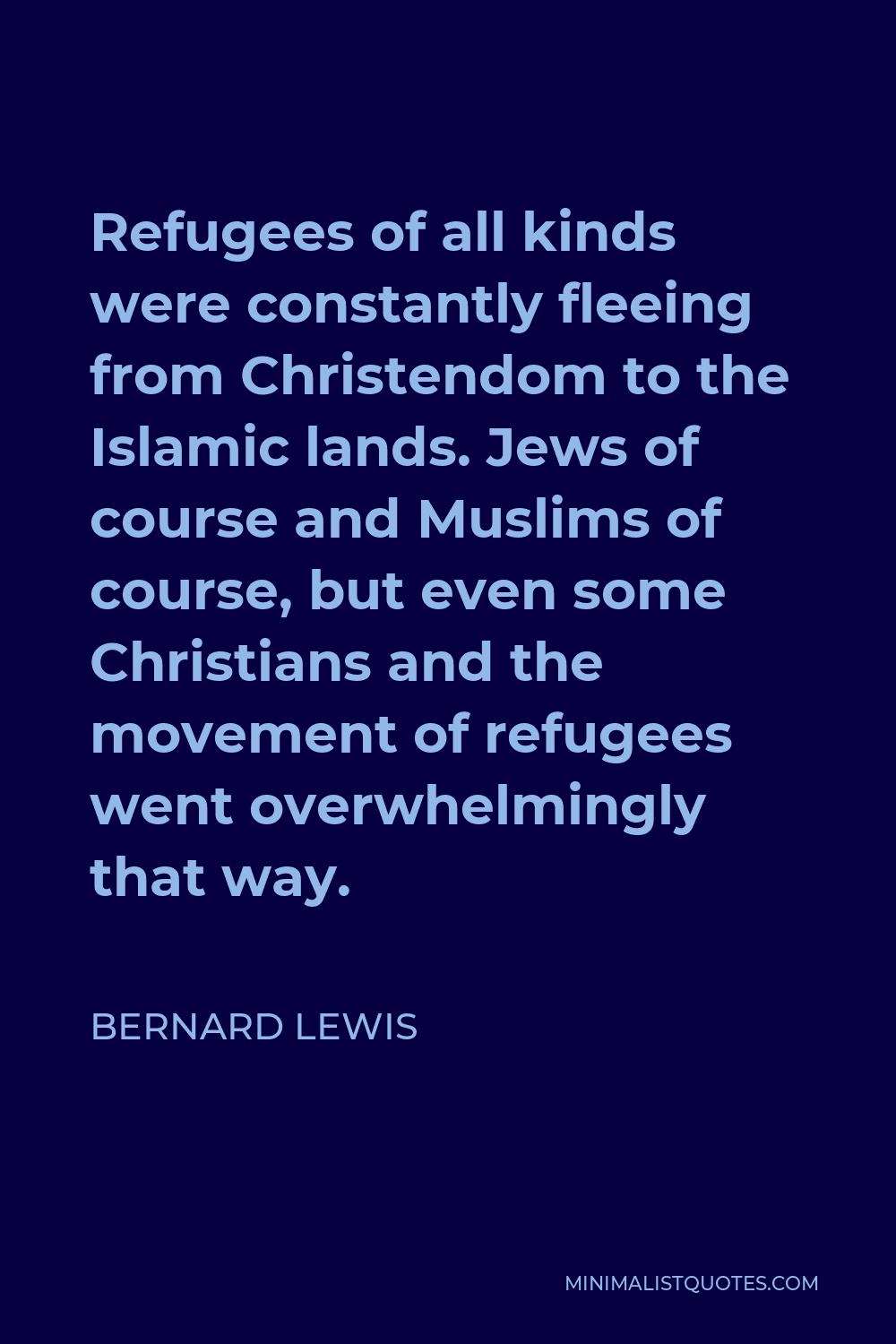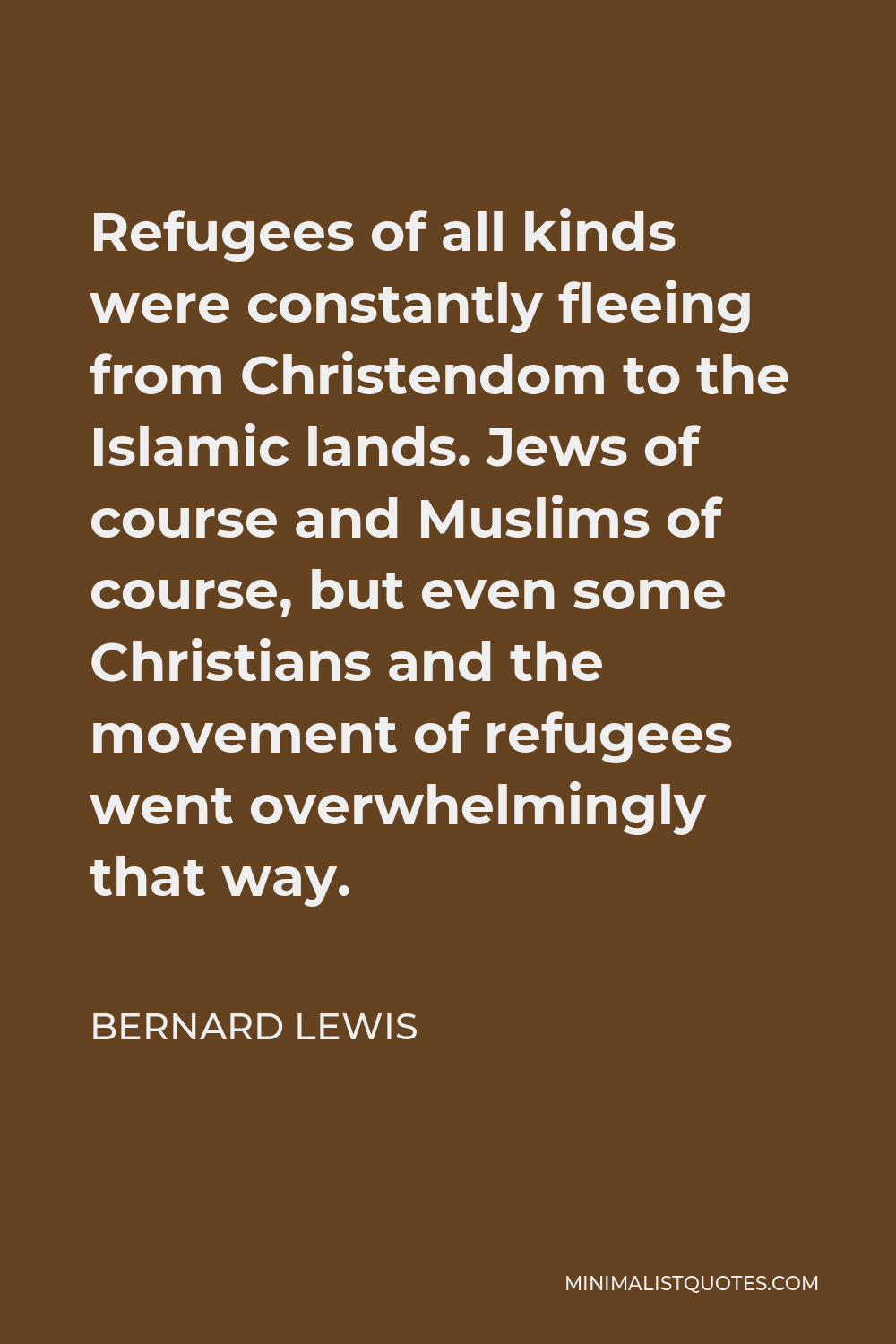Mustafa Kemal’s government was certainly authoritarian, but he had a saying which is profoundly true.
BERNARD LEWISRefugees of all kinds were constantly fleeing from Christendom to the Islamic lands. Jews of course and Muslims of course, but even some Christians and the movement of refugees went overwhelmingly that way.
More Bernard Lewis Quotes
-





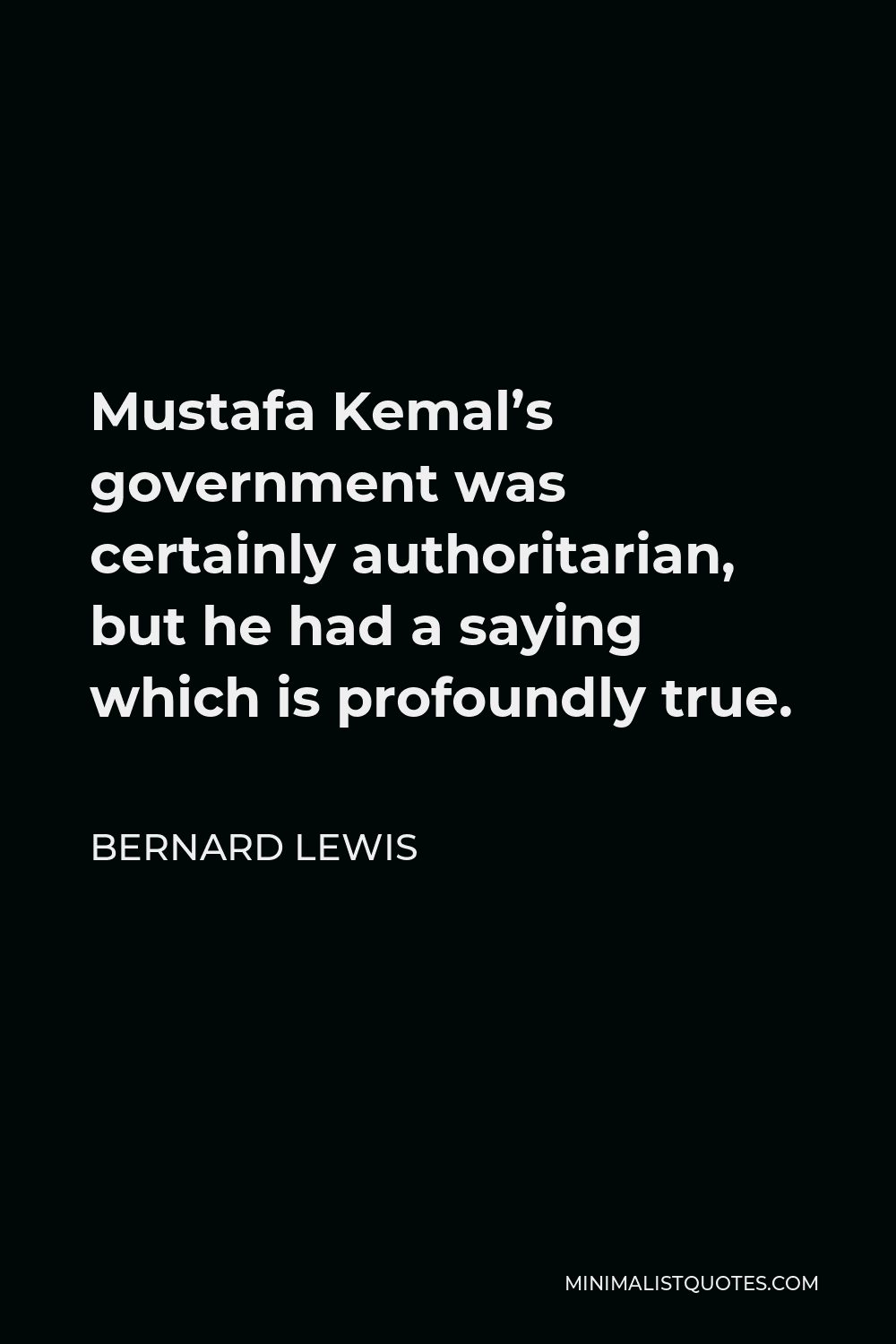
-





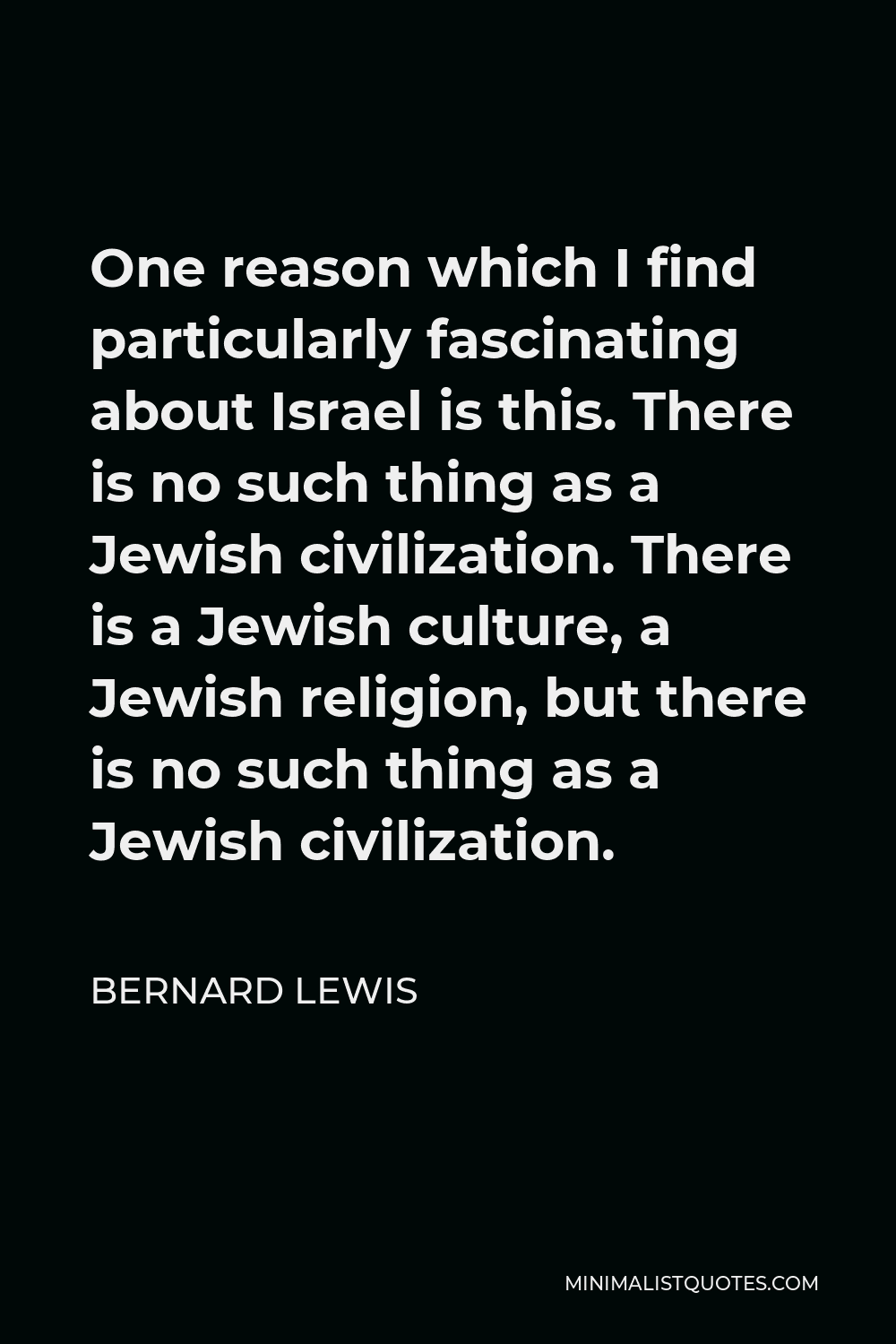
One reason which I find particularly fascinating about Israel is this. There is no such thing as a Jewish civilization. There is a Jewish culture, a Jewish religion, but there is no such thing as a Jewish civilization.
BERNARD LEWIS -





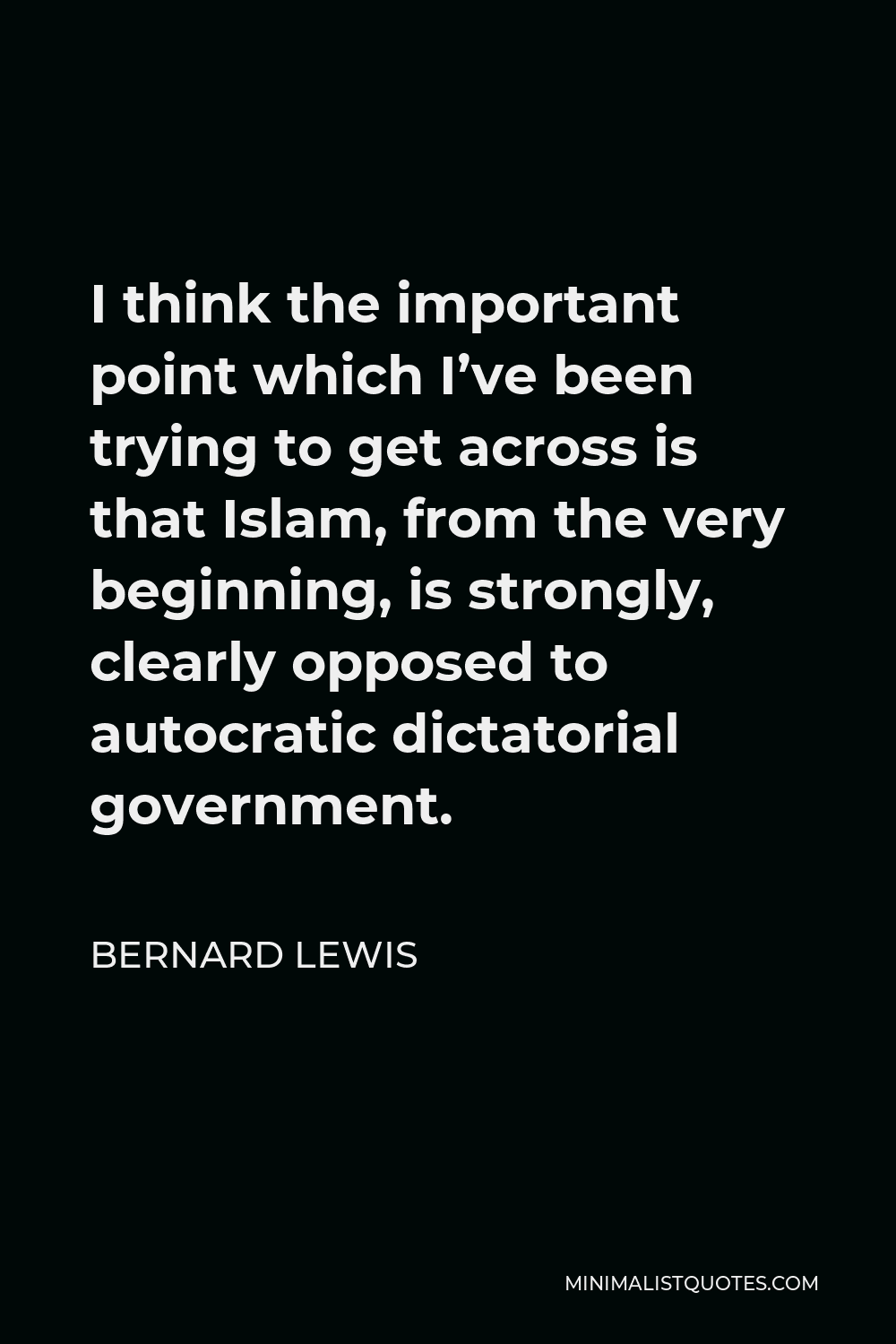
I think the important point which I’ve been trying to get across is that Islam, from the very beginning, is strongly, clearly opposed to autocratic dictatorial government.
BERNARD LEWIS -





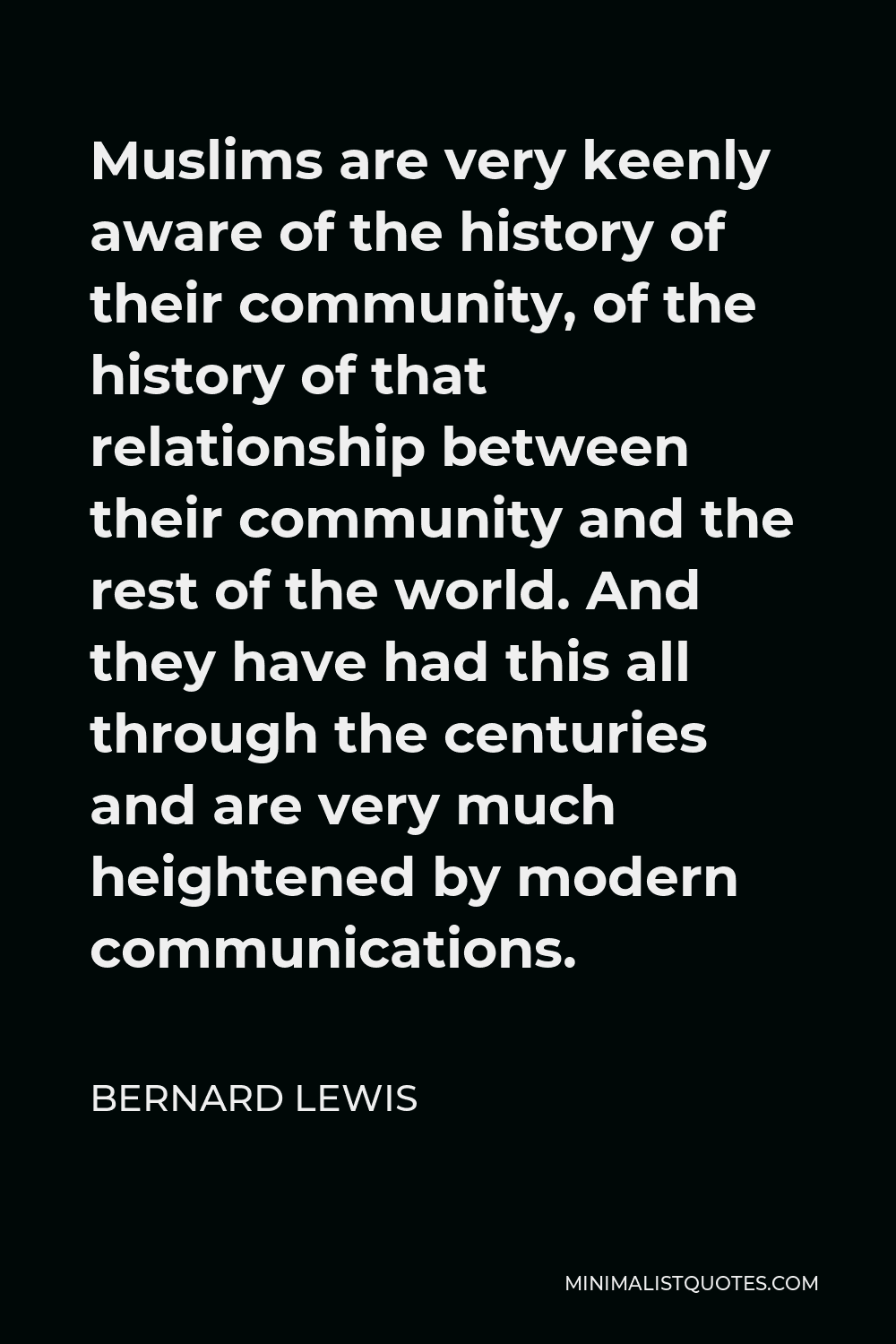
Muslims are very keenly aware of the history of their community, of the history of that relationship between their community and the rest of the world. And they have had this all through the centuries and are very much heightened by modern communications.
BERNARD LEWIS -





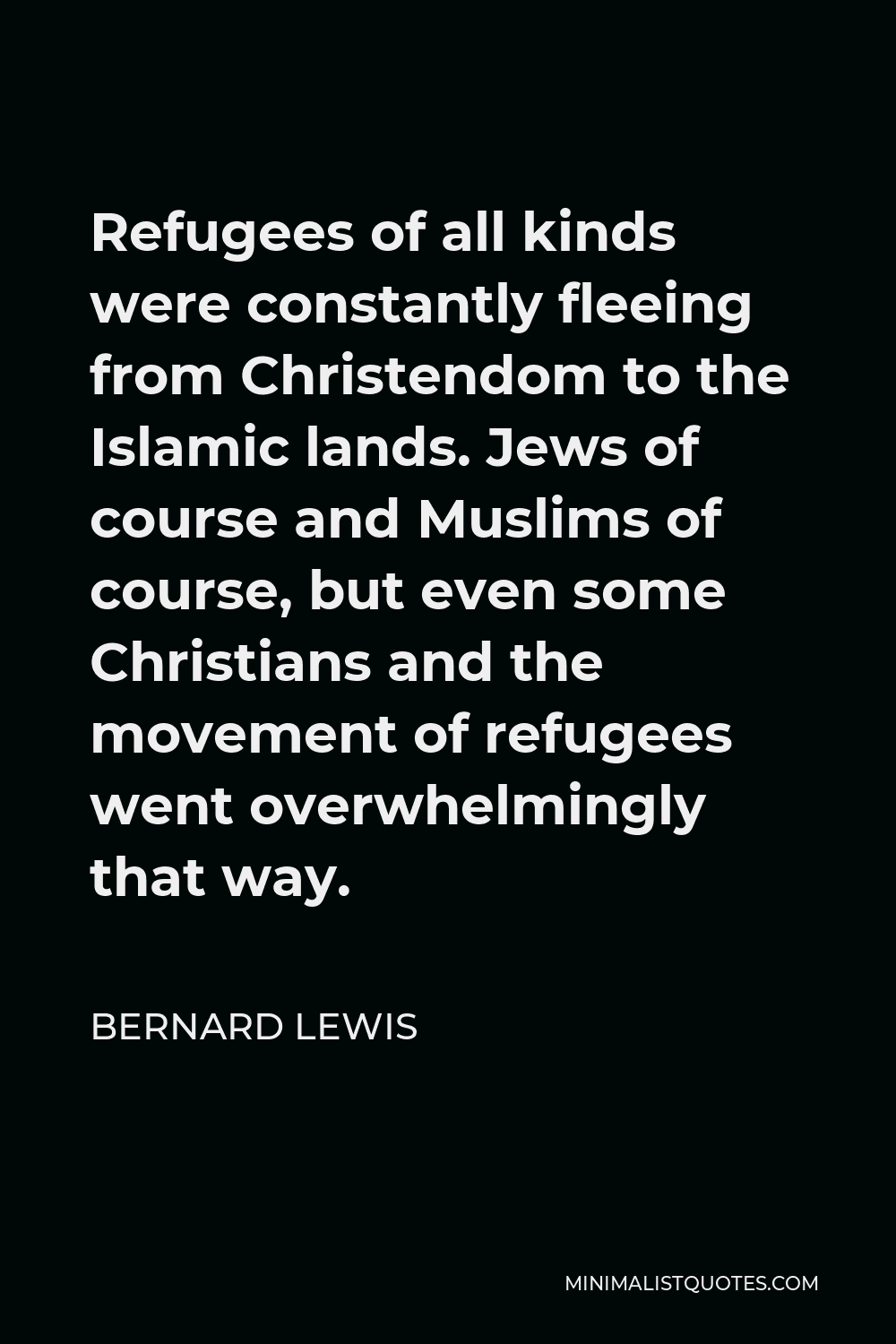
Refugees of all kinds were constantly fleeing from Christendom to the Islamic lands. Jews of course and Muslims of course, but even some Christians and the movement of refugees went overwhelmingly that way.
BERNARD LEWIS -





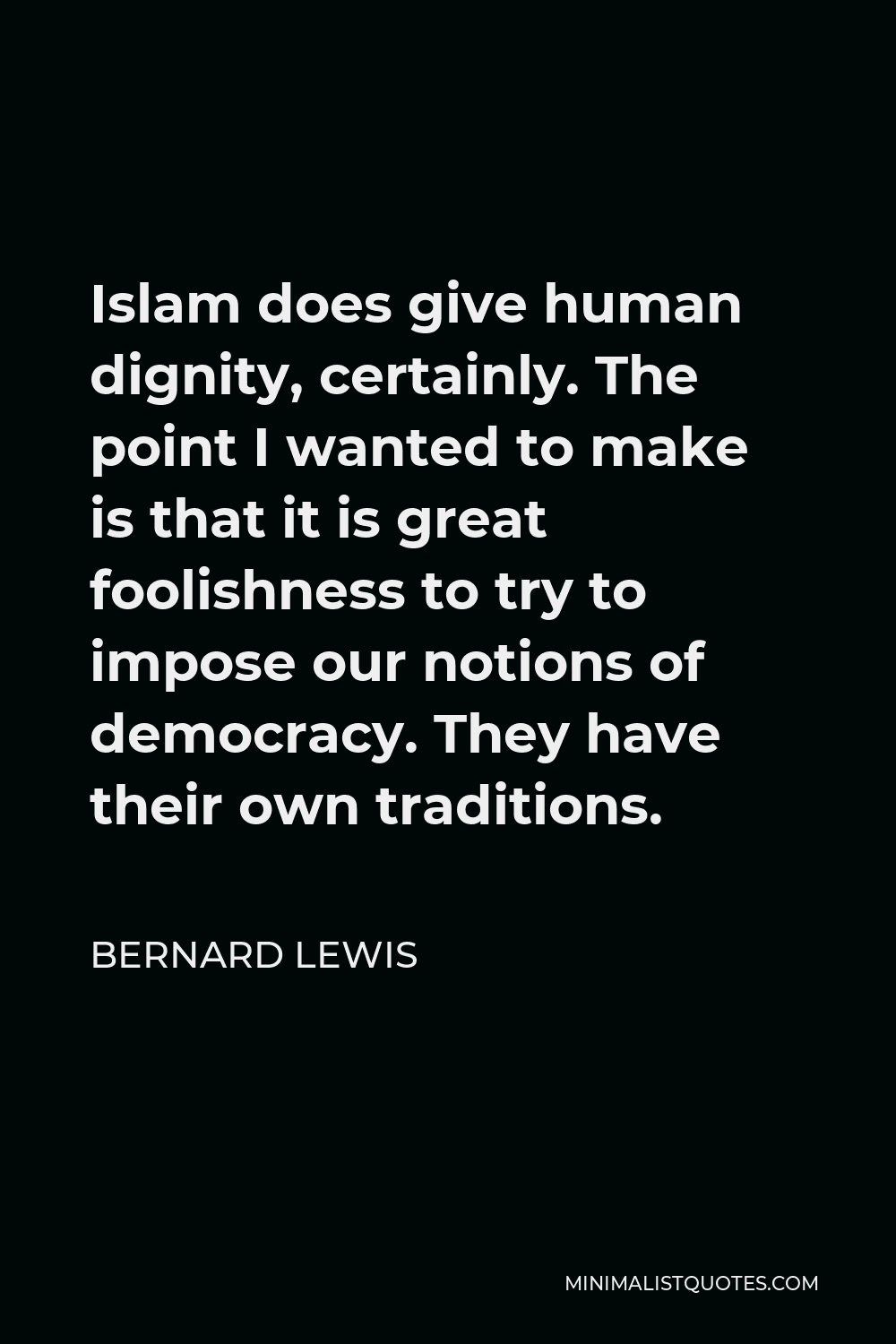
Islam does give human dignity, certainly. The point I wanted to make is that it is great foolishness to try to impose our notions of democracy. They have their own traditions.
BERNARD LEWIS -





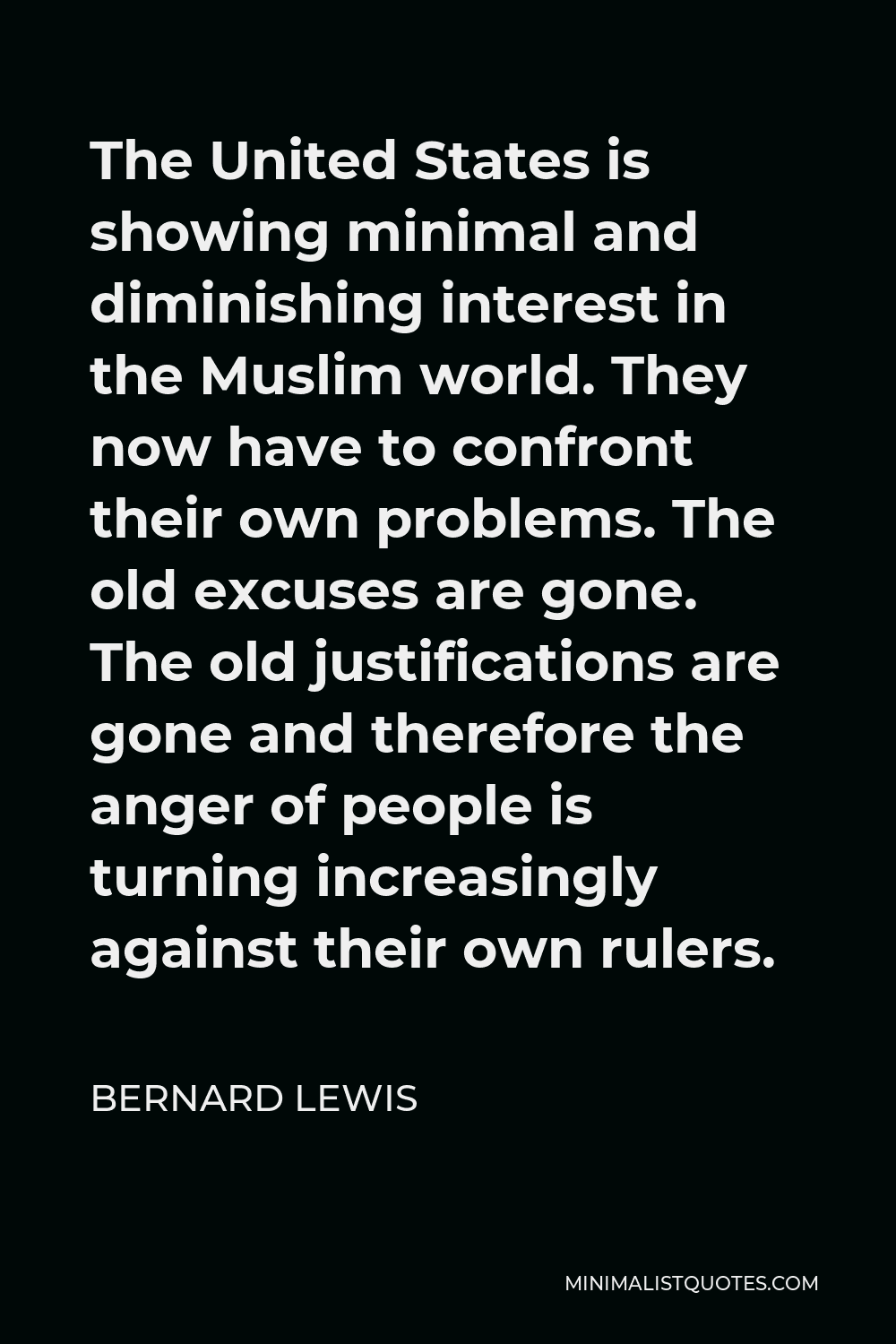
The United States is showing minimal and diminishing interest in the Muslim world. They now have to confront their own problems. The old excuses are gone. The old justifications are gone and therefore the anger of people is turning increasingly against their own rulers.
BERNARD LEWIS -





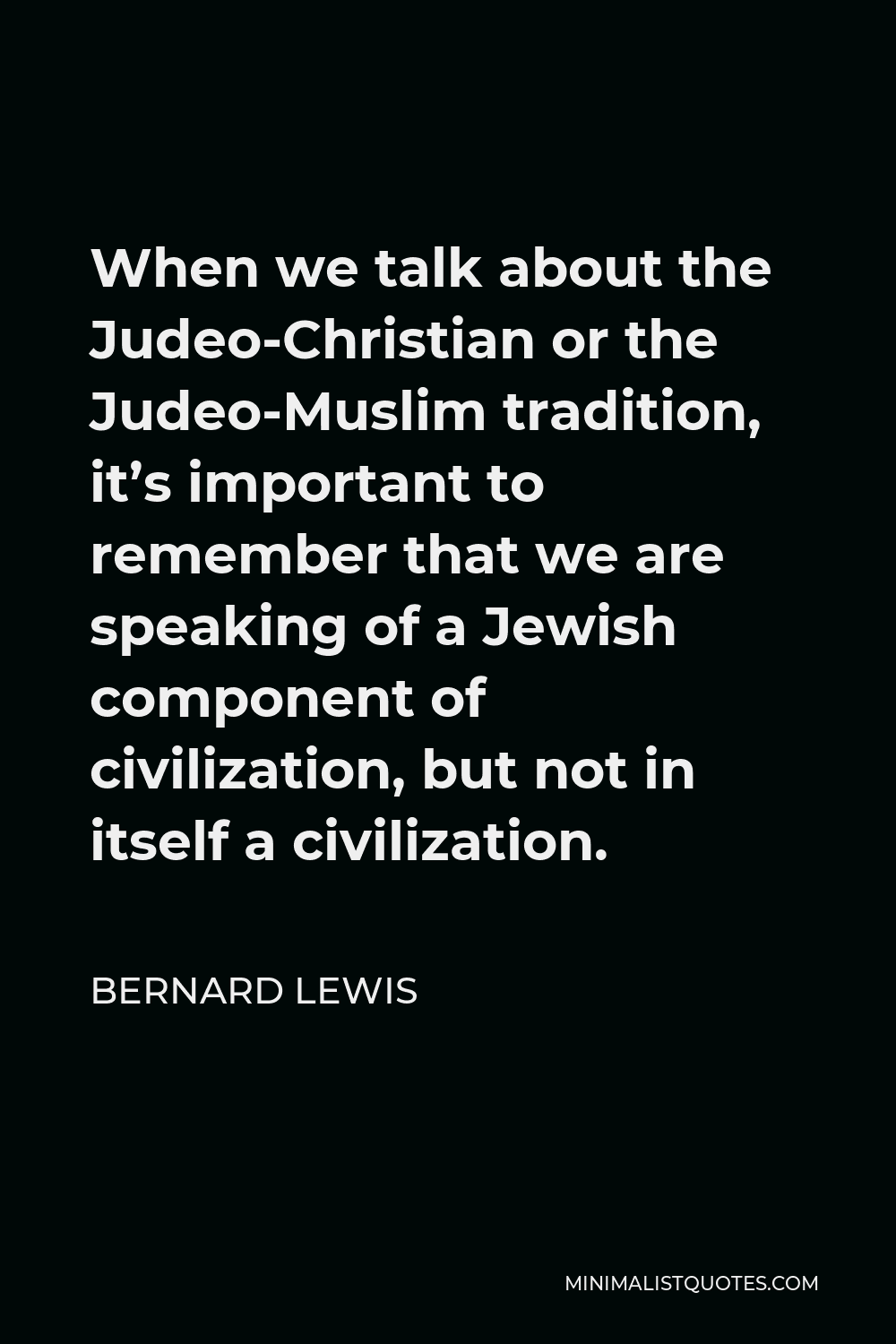
When we talk about the Judeo-Christian or the Judeo-Muslim tradition, it’s important to remember that we are speaking of a Jewish component of civilization, but not in itself a civilization.
BERNARD LEWIS -





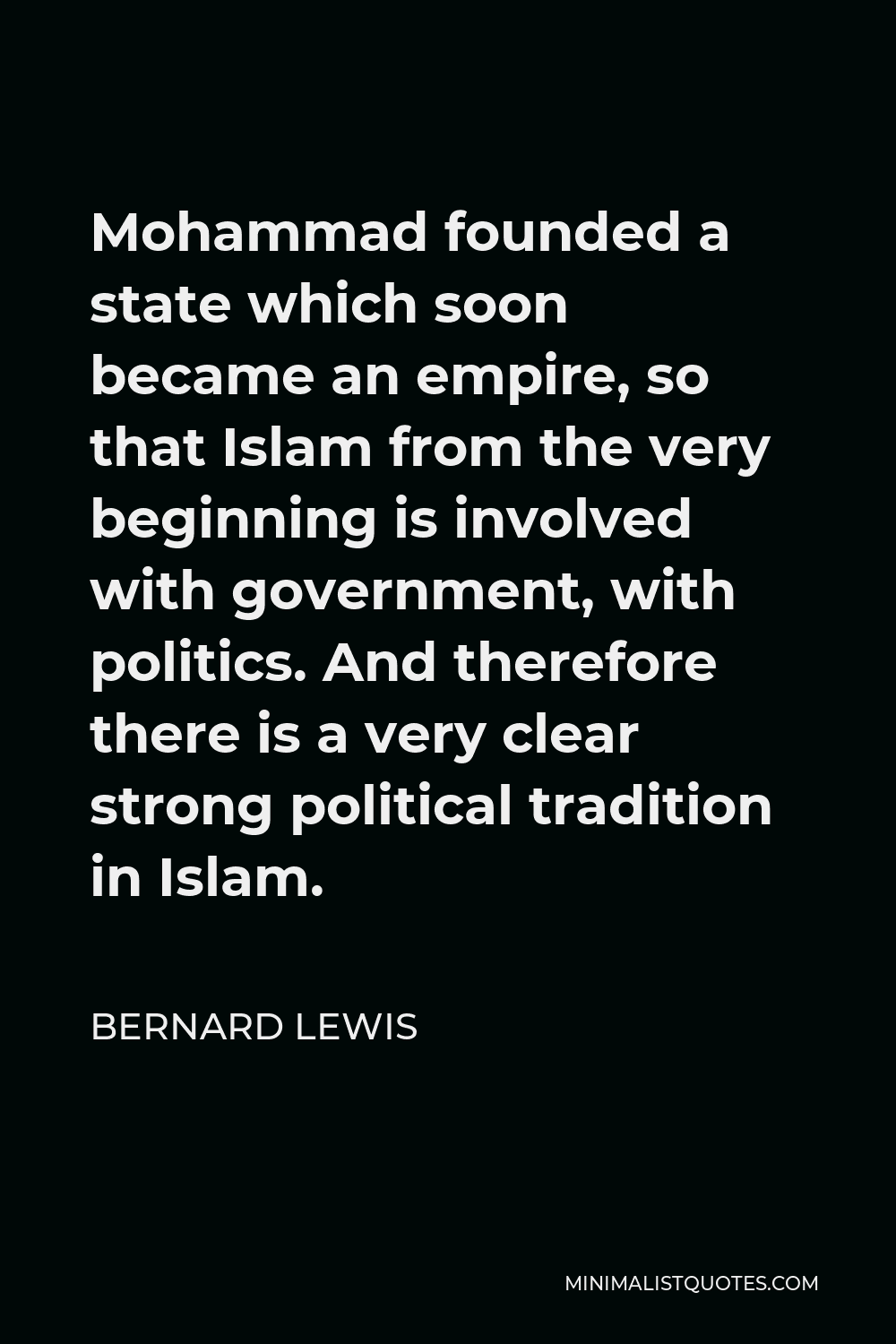
Mohammad founded a state which soon became an empire, so that Islam from the very beginning is involved with government, with politics. And therefore there is a very clear strong political tradition in Islam.
BERNARD LEWIS -





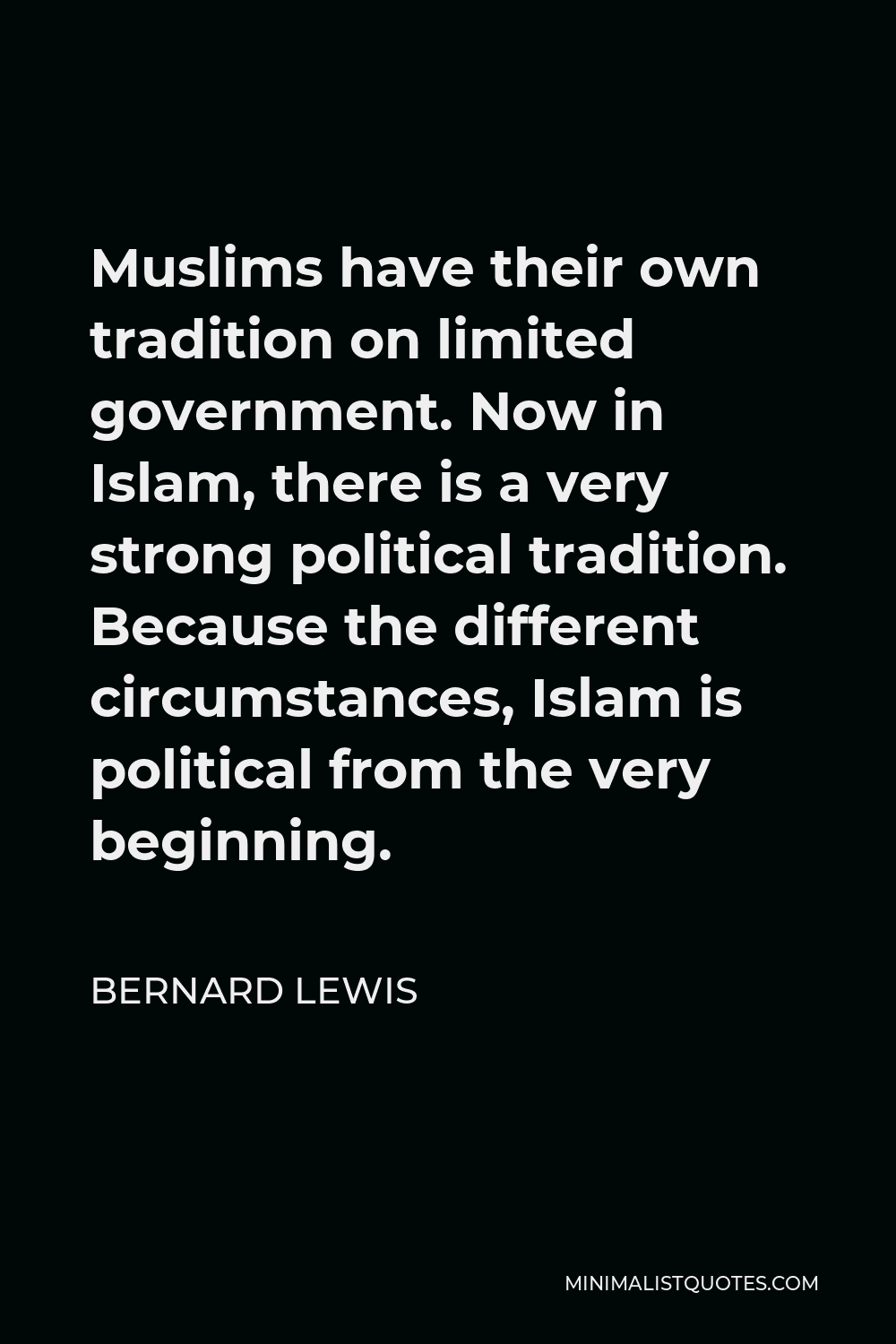
Muslims have their own tradition on limited government. Now in Islam, there is a very strong political tradition. Because the different circumstances, Islam is political from the very beginning.
BERNARD LEWIS -





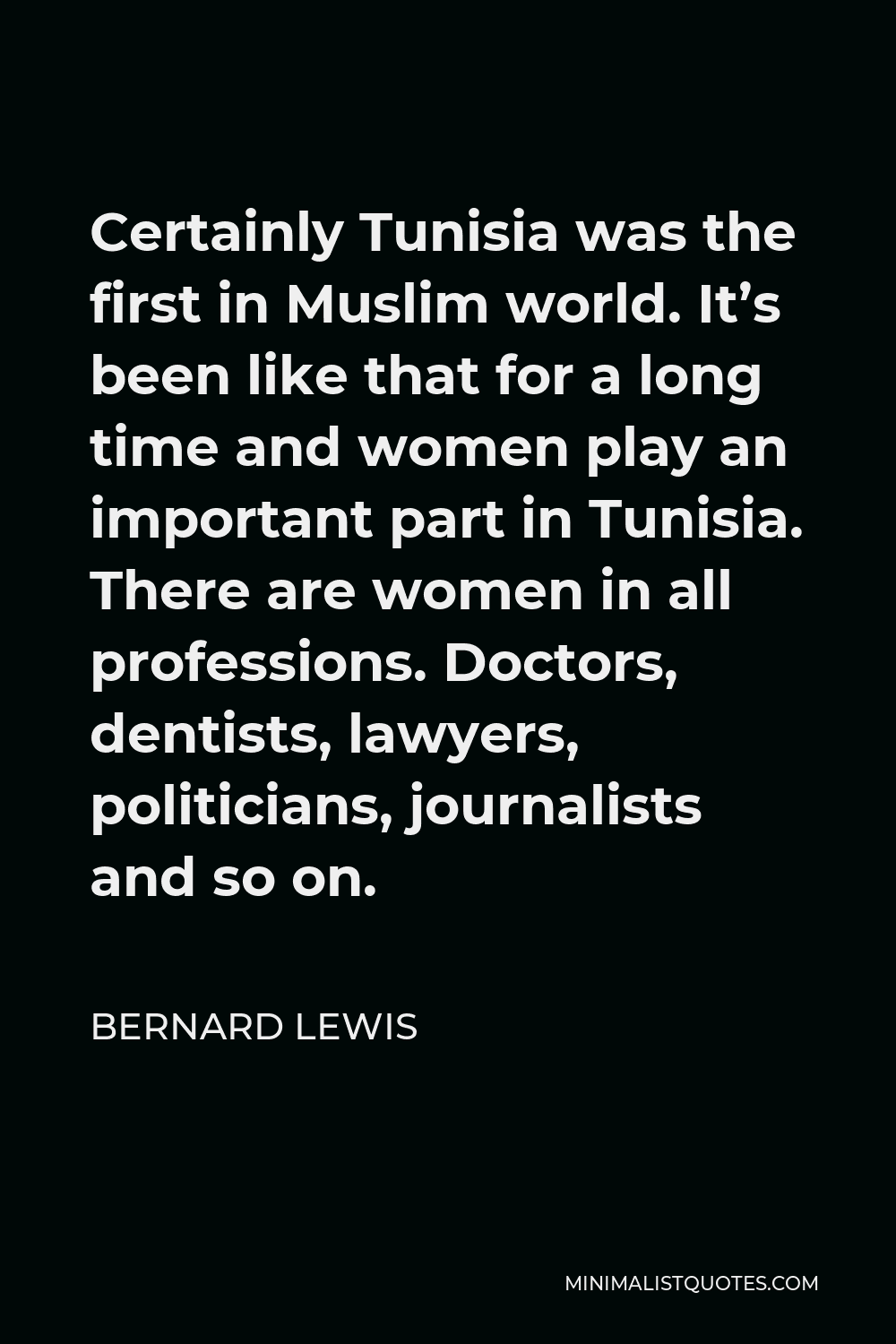
Certainly Tunisia was the first in Muslim world. It’s been like that for a long time and women play an important part in Tunisia. There are women in all professions. Doctors, dentists, lawyers, politicians, journalists and so on.
BERNARD LEWIS -





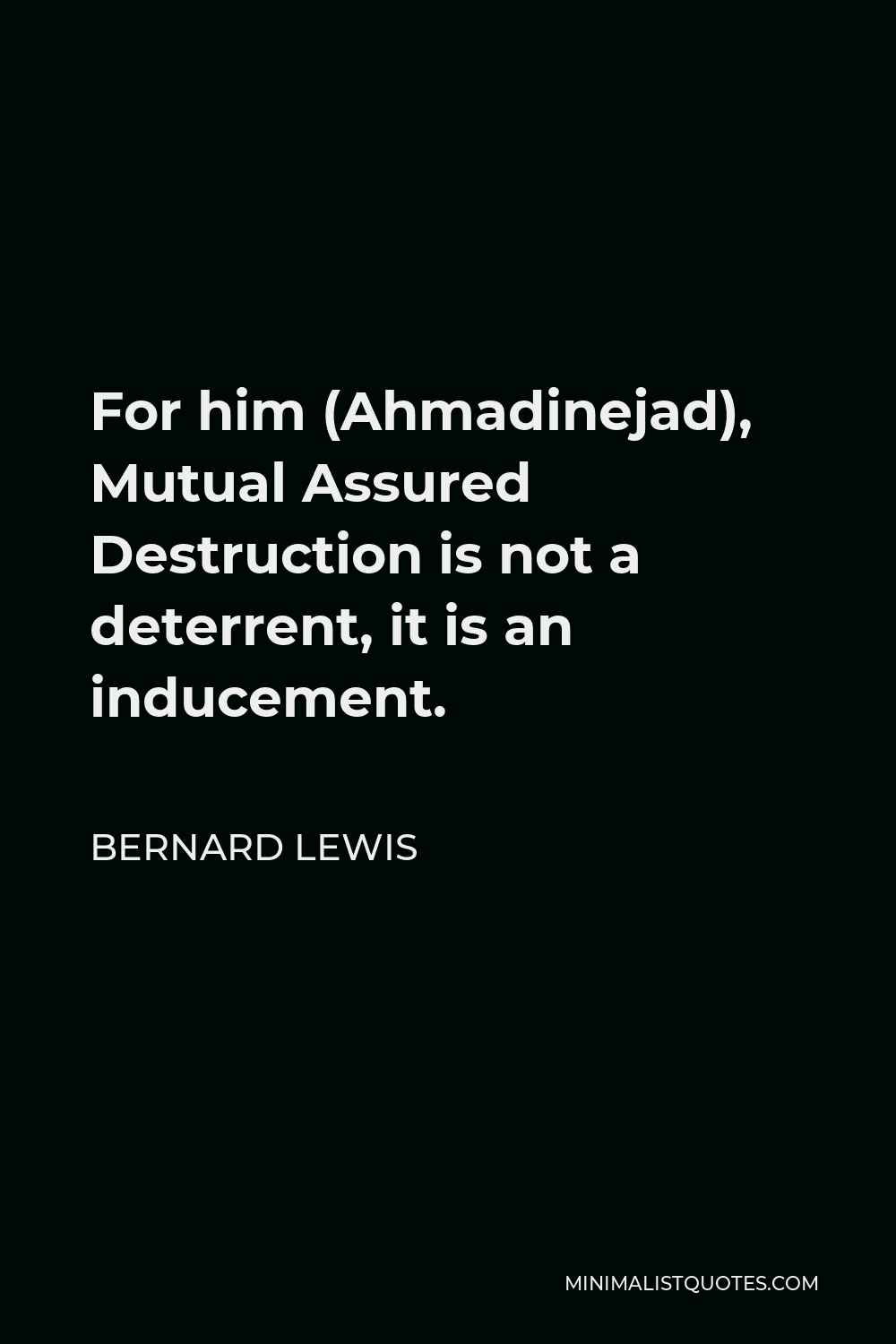
For him (Ahmadinejad), Mutual Assured Destruction is not a deterrent, it is an inducement.
BERNARD LEWIS -





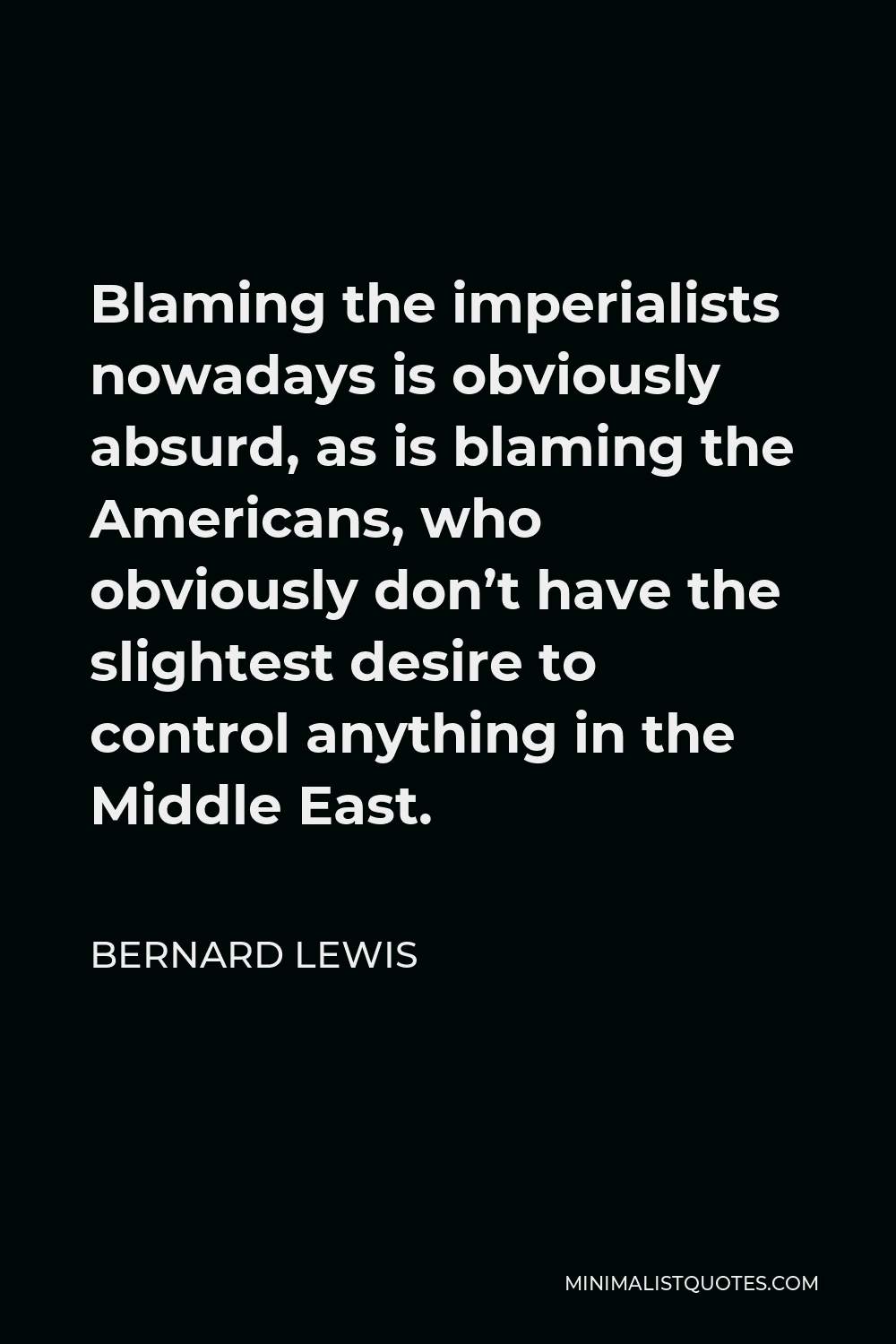
Blaming the imperialists nowadays is obviously absurd, as is blaming the Americans, who obviously don’t have the slightest desire to control anything in the Middle East.
BERNARD LEWIS -





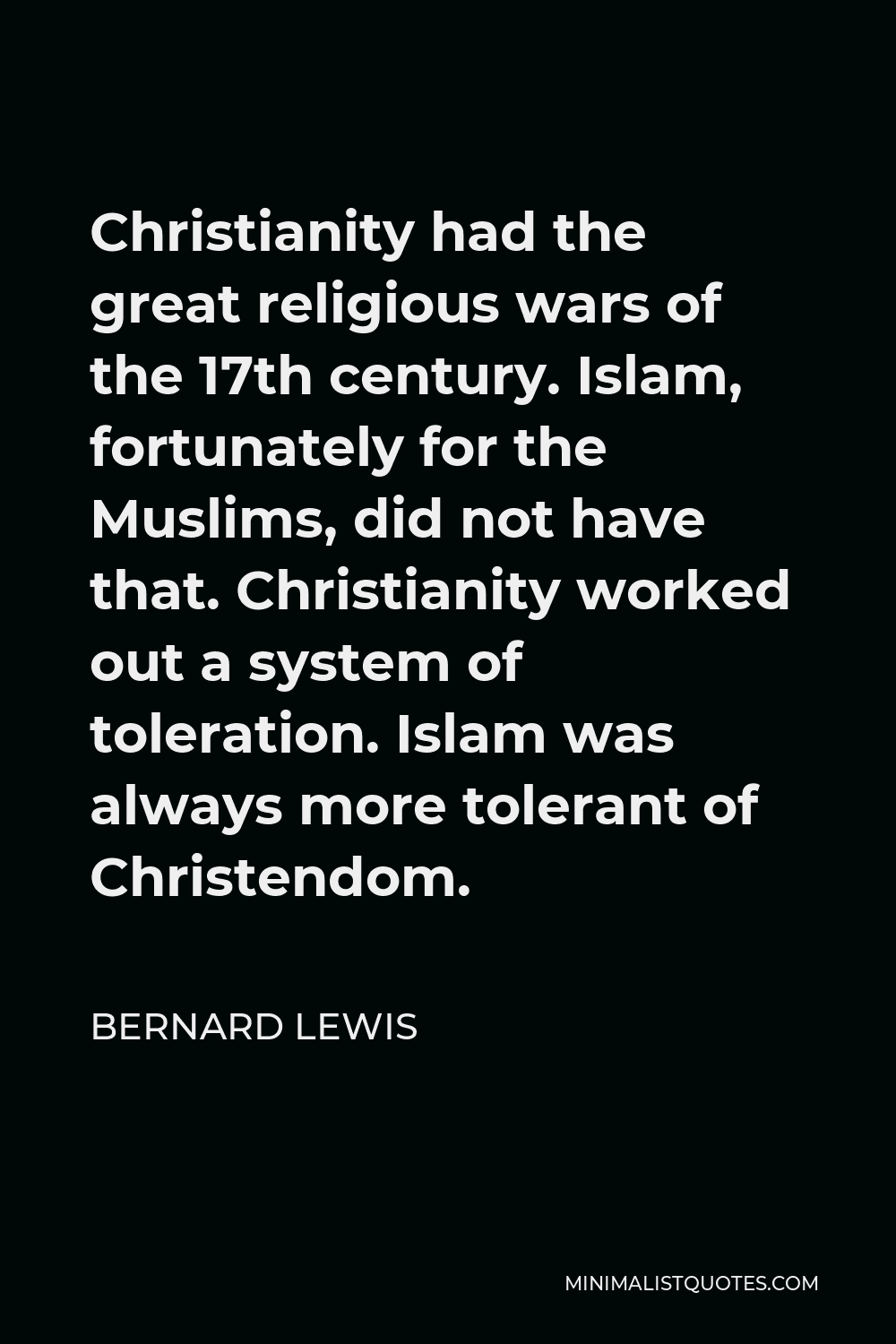
Christianity had the great religious wars of the 17th century. Islam, fortunately for the Muslims, did not have that. Christianity worked out a system of toleration. Islam was always more tolerant of Christendom.
BERNARD LEWIS -





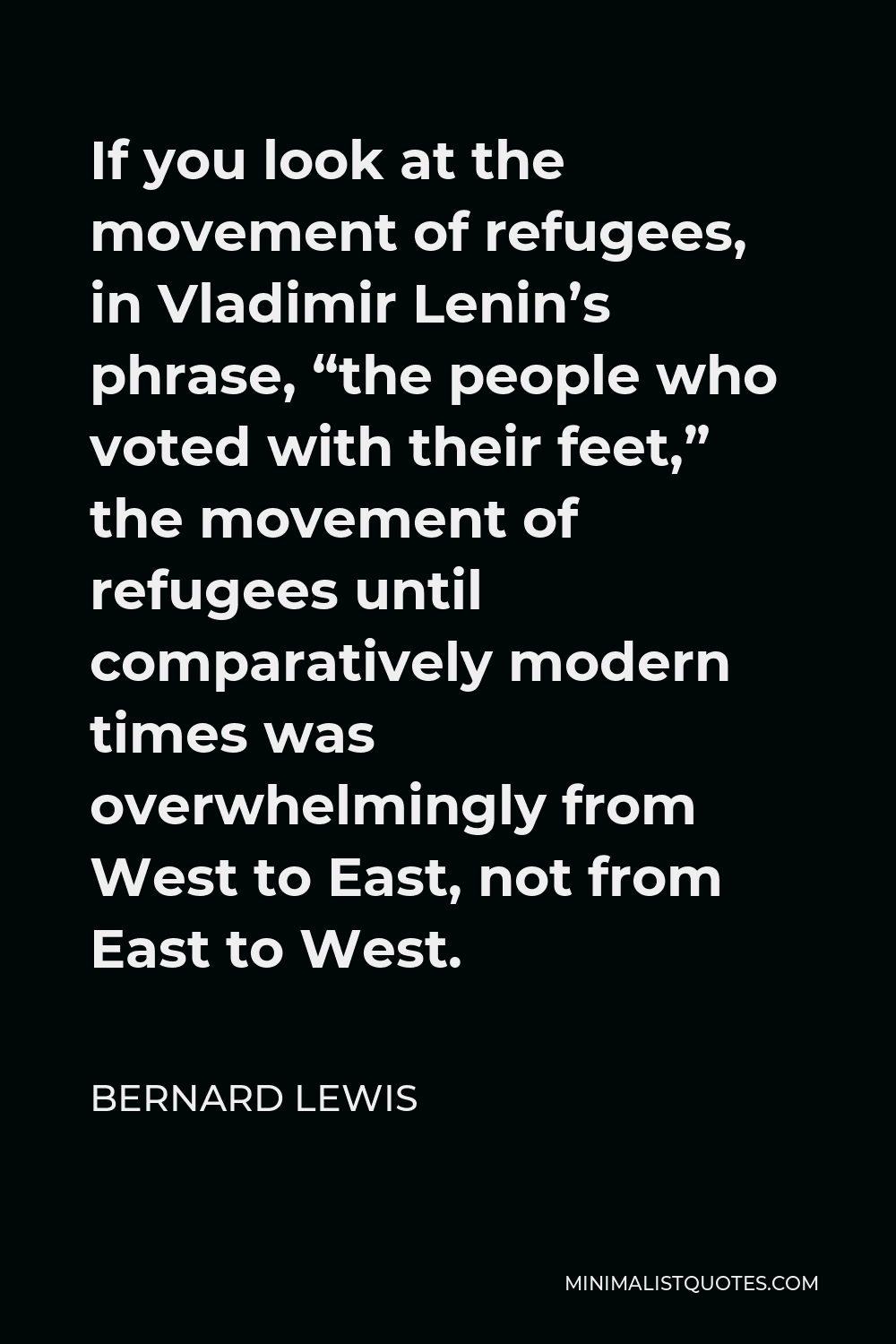
If you look at the movement of refugees, in Vladimir Lenin’s phrase, “the people who voted with their feet,” the movement of refugees until comparatively modern times was overwhelmingly from West to East, not from East to West.
BERNARD LEWIS -






If the conflict is about the size of Israel, then long and difficult negotiations can eventually resolve the problem. But if the conflict is about the existence of Israel, then serious negotiation is impossible.
BERNARD LEWIS


